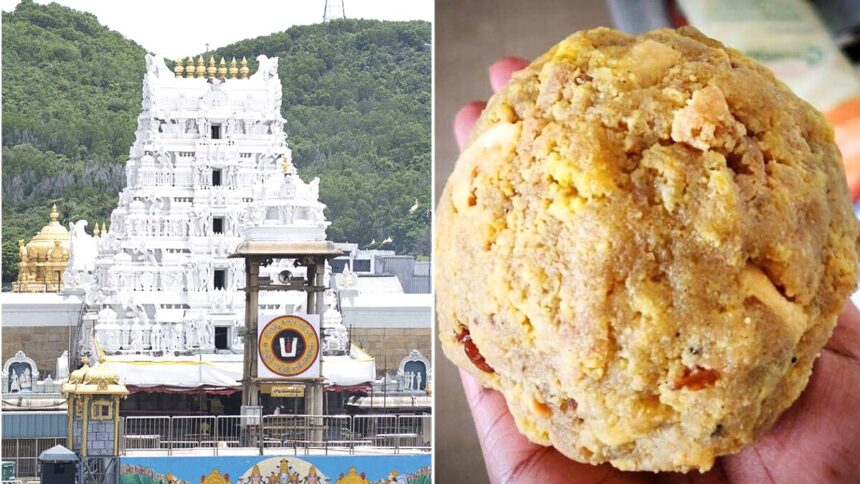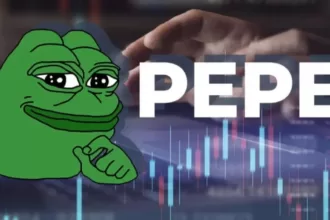The Lord Venkateswara in Tirupati Temple, one of Hinduism’s holiest sites, recently found itself at the center of a controversy involving allegations of animal fat in the ghee used to prepare laddoos, a revered devotional offering. This controversy has sparked political turmoil, public outrage, and a series of purification rituals to restore faith in the temple’s sacred practices.
Background of the Controversy
The uproar began when a lab report surfaced, indicating that the ghee used in the temple kitchen contained high levels of fish oil, beef tallow, and lard. This revelation prompted Andhra Pradesh Chief Minister N. Chandrababu Naidu to accuse the previous YSR Congress Party (YSRCP) government of allowing such practices during their tenure. His statement ignited a firestorm, leading to accusations of irresponsibility and political opportunism from YSRCP leaders, who vowed to defend their integrity.
#WATCH | Andhra Pradesh: TTD (Tirumala Tirupati Devasthanams) organised a Maha Shanti Homam in the wake of Laddu Prasadam row.
Executive officer of Tirumala Tirupathi Devastanam (TTD) Shamala Rao and other officials of the Board participated in the Homamam along with the… pic.twitter.com/Gkh7JFeljT
— ANI (@ANI) September 23, 2024Purification Rituals at Tirupati Temple
In response to the scandal, an extensive purification ceremony, or ‘maha shani homam,’ was performed by a large group of priests at the Tirupati temple. Temple officials stated that this ritual aimed to “ward off ill effects of adulteration” and restore the sanctity of the laddoos, which are traditionally viewed as ‘prasadam’ (blessed offerings) to devotees. Head priest Krishna Seshachala Deekshitulu reassured devotees, stating, “Everything is purified… Come have darshan and take prasadam back home.”
The Executive Officer of the Tirumala Tirupati Devasthanam (TTD), which oversees temple operations, highlighted that the new procurement system now focuses on acquiring ‘pure cow ghee,’ enhancing the laddoos’ flavor and quality.
Political Fallout
The political ramifications of the ghee controversy are significant. Chief Minister Naidu has called for a special police investigation into the allegations. He expressed concern over “irregularities” in temple management during the previous administration, suggesting that non-Hindus would not be permitted on the temple management board.
Meanwhile, former TTD Chairperson Bhumana Karunakar Reddy vehemently defended the integrity of the temple’s operations, asserting that rigorous testing practices have been in place to ensure the quality of the ghee used. He noted that if any tanker was found to have substandard ghee, it would be promptly rejected.
Naidu’s comments sparked a flurry of responses from various political leaders. Deputy Chief Minister Pawan Kalyan launched an 11-day ‘Praschit Deeksha’ (penance) to atone for the alleged desecration of the temple’s offerings. He criticized past rulers for allowing such grave errors, expressing his deep sorrow over the matter.
Community Response
Despite the political tumult, the average devotee seems largely unfazed by the controversy. Reports indicate that the sale of laddoos at Tirumala has not diminished, even amidst the uproar. Devotees continue to view the Srivari laddu as a sacred offering, reflecting their unwavering faith in the temple.
The Role of Social Media
The issue has also gained traction on social media, with leaders from various political factions expressing their views. Hindu activists in Bhopal even resorted to burning effigies of YSR Congress leaders, holding them accountable for the alleged defilement of sacred offerings. Congress leader Rahul Gandhi called for a thorough examination of the situation, highlighting the significance of the matter to many Hindus.
Investigations and Legal Actions
The political tensions surrounding the issue have prompted calls for investigations at multiple levels. A public interest litigation (PIL) has been filed in the Supreme Court, seeking a comprehensive probe into the use of animal fat in temple offerings, arguing that such practices violate Article 25 of the Indian Constitution, which guarantees the freedom of religion.
The union government has also stepped in, with Health Minister J.P. Nadda demanding a detailed report. Union Food Minister Pralhad Joshi affirmed that the issue would be taken seriously and pursued to its logical conclusion.
Historical Context of Temple Management
The Tirumala Tirupati Devasthanam has faced controversies in the past, including accusations of missing valuables and alleged proselytization attempts on temple grounds. Such issues often become politicized, with various factions seeking to leverage them for electoral gain.
The ongoing scandal surrounding the ghee has reignited discussions about the integrity of temple management and the need for transparency. Critics argue that the timing of Naidu’s accusations appears politically motivated, particularly given the forthcoming elections and his party’s recent struggles.
The controversy surrounding the use of animal fat in ghee at the Tirupati Temple underscores the intersection of faith, politics, and community sentiment in India. While the temple’s management has taken steps to restore faith among devotees through purification rituals, the political fallout continues to unfold. As investigations proceed, the significance of this issue remains profound, affecting not only the reputation of the temple but also the beliefs of millions of devotees.
This ongoing situation serves as a reminder of the delicate balance between religious practices and political interests, as well as the need for transparency in temple administration to uphold the sanctity of sacred traditions.
Read More : Scandal Unveiled: Controversy Over Tirupati Laddus Raises Devotional Outrage






